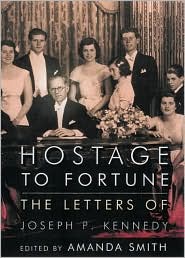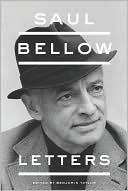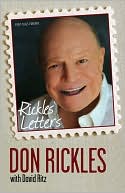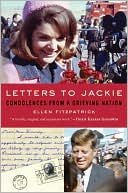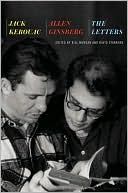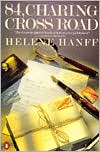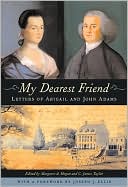For Your Eye Alone: Robertson Davies' Letters, 1976-1995
"Robertson Davies brought a great sense of style to everything he wrote. Whether it was a letter to his daughter ("Love from us both, Daddy") or a formal letter to the editor disemboweling a hostile review that concludes humbly ("I am content to remain, Yours, writhing in deserved ignominy ..."), he wrote with care, with zest, and in a clearly distinctive voice." "Since these letters written by Davies have been selected from the years when he was at the height of his fame, the recipients...
Search in google:
"Robertson Davies brought a great sense of style to everything he wrote. Whether it was a letter to his daughter ("Love from us both, Daddy") or a formal letter to the editor disemboweling a hostile review that concludes humbly ("I am content to remain, Yours, writhing in deserved ignominy ..."), he wrote with care, with zest, and in a clearly distinctive voice." "Since these letters written by Davies have been selected from the years when he was at the height of his fame, the recipients range widely, from Sir John Gielgud to Margaret Atwood to his publishers around the world. Naturally, like all the best letters, they contain fascinating gossip: "... and Salvador Dali, at the next table, raised his eyebrows and popped his eyes to such a degree that I feared they might leave their moorings and bounce about the floor."" "The title of the book comes from a confidential letter to Jack McClelland and hints at the secrets to be learned from these letters. This "over the shoulder" look at his private correspondence shows us Davies in a variety of roles: as a keen theatergoer writing a letter of congratulations to an actor after a fine performance; as a professional writer advocating to a cabinet minister fair rates for authors; as a husband constructing a handwritten circular card to convey loving birthday greetings to his wife; as a bearer of health - giving good cheer to an ailing friend; and as a novelist struggling with his new books, and admitting to his doubts about them." "The letters are frequently testy, tart, and not always "politically correct." Among those who felt his sting are Judith Skelton Grant, his biographer, and Douglas Gibson, his publisher, but other, more deserving targets are suitably chastised. And whether they are funny, moving, or thought provoking, these private letters provide a new look at the private Davies, revealed in his own vigorous words."--BOOK JACKET.Publishers WeeklyIn amassing the first collection of the late Canadian novelist's letters, Davies's biographer Grant (Robertson Davies: Man of Myth) discovered many had actually been framed, which says something about not only Davies's status as grand old man of Canuck letters, but also their sheer entertainment value. This volume covers the years from 1976, when he was 63, to his death in 1995; during this period, he was at last a successful public figure, as the master of Massey College at the University of Toronto and the successful novelist of the Deptford Trilogy. His status is elevated enough that he not only helpfully blurbs aspiring novelists' works, but also burlesques literary critics and book reviewers (though he warns one lucky recipient, "PS: Of course this letter is for your eye alone"). In the world of letters, his correspondents include fellow novelists John Irving, Mordecai Richler and Margaret Atwood, his editors and translators, and, of course, his readers, from schoolgirls to college professors. He deals with them all with equanimity and good humor, whether answering questions about his Jungian symbolism or explicating the Canada-Quebec culture wars and the propinquitous influence of the United States. As a public figure, he occasionally writes open letters to newspaper editors; in private his sentiments range from cheerfully curmudgeonly to plain irascible. His sporadic reminiscences about his early years in the theater in England and in provincial journalism might leave the reader wishing for letters from that younger Davies, but as these show, the great writer mastered the art of growing old gracefully and entertainingly. (Jan. 15) Forecast: Thanks to Davies's sterling reputation, this will be widely reviewed. Davies has legions of fans south of the Canadian border, and they will delight in this opportunity to meet the novelist in his own words. Copyright 2000 Cahners Business Information.
\ \ \ \ \ Excerpt\ January 1976-March 1979 — The Rebel Angels planned\ \ \ In 1976, the year he turned 63, Robertson Davies was at the peak of his powers. The warm American critical reception of the novels of the Deptford trilogy had by now established his reputation as a major novelist. Their success had attracted the first of a series of contracts with Penguin Books, which would see reprints of his books distributed worldwide. By 1976, too, Davies had become an established, respected figure at the University of Toronto. As the first Master of Massey College, he had made it a centre for intellectual gatherings and ceremonial events, and as a professor in the Drama Centre and in the Graduate Department of English, he had gained his colleagues' respect for his teaching. His earlier journalistic career — as editor of the Peterborough Examiner 1942-63, literary editor of Saturday Night magazine 1940-42 and 1953-59, and columnist for the Toronto Star newspaper syndicate 1959-62 — had provided him with a reviewer's familiarity with Canada's literary scene. His knowledge of the theatre was extraordinarily broad, the product of his lifelong enthusiasm for drama as playgoer, actor, director, playwright, collector, and professor. He had learned much from the works of Freud as a young man, but by 1976, he had become a thoroughgoing Jungian, capable of talking about complex psychological issues simply and clearly. He wrote with easy authority in a wide range of keys to correspondents of many sorts.\ Davies was a very busy man. He found time for many commitments in addition toCollege administration, teaching, and the writing of novels. In the summers of 1976, 1977, and 1978, for example, he spent a week at the Wesleyan-Suffield Writers' Conference in Connecticut giving lectures and counselling students. He wrote and gave many speeches, collected for publication as One Half of Robertson Davies (1977). In the course of the 1976-77 university year, he wrote his last play, the full-length Pontiac and the Green Man, for the University's sesquicentennial celebrations (it drew scathing reviews). And he responded as well as he could to the many letters sent to him by readers and students studying his work.\ His private life at this time had a regular rhythm: with his wife, Brenda, he spent weekdays living in the Master's Lodgings at Massey College, and weekends and university breaks at Windhover, their country house near Caledon East, an hour's drive from Toronto. Their three daughters, Miranda, Jennifer and Rosamond, were by now living independent lives. Both Jennifer and Rosamond had married, and Rosamond had four children. Theatre continued to be a great pleasure, and Davies and Brenda saw, on average, a play once every week or two, in Toronto, at the Shaw Festival in Niagara-on-the-Lake and the Stratford Festival (both an easy drive from Caledon East), and in London during jaunts abroad.\ \ \ * * *\ \ \ To J. G. MCCLELLAND\ \ \ Massey College\ University of Toronto\ January 6, 1976\ \ \ Dear Jack:\ \ \ Thanks for your letter of December 24; it did not reach me until December 31, and I did not have time to read the MS until last night. You ask for a comment you can use. Very well: here goes —\ \ \ The theme of Bear is one of the most significant and pressing in Canada in our time — the necessity for us who are newcomers to the country, with hardly four hundred years of acquaintance with it, to ally ourselves with the spirit of one of the most ancient lands in the world. In our search for this spirit, we are indeed in search of ourselves.\ \ \ There — that being done, let me say a few other things, not for quotation. I thought the book admirably written, spare and taut, with a good command of tone throughout; the changes from reality to fantasy are very well managed, and the pathos of the lonely woman is conveyed without too much agonizing and feminine self-pity. It reminded me of Margaret Atwood's Surfacing, because it explores the same ground — the search for healing in the wilderness — but I thought it a much better book as a work of art. I am not surprised Margaret Laurence and Adele Wiseman urged you to publish it: it is, in the best sense, a woman's book, and they know what they are talking about. But — this must be put delicately — neither Margaret nor Adele, who are both dears, labour under the burden of a strong sense of humour, and when the book is published you had better prepare yourself for some explosions, not of outrage but of ribaldry.\ Writing from my own recent experience, I think you may run into a few things like this: MacSkimming will like the book and understand it; French will not like the book and won't understand it, and will be vulgarly jocose about it; Brian Vintcent will complain that it is elitist (not every woman has a bear, so why should any woman have one?) and will hint that bears are well-known to be homosexuals (like all sensitive people) and should not be bothered by importunate archivists. All critics, everywhere in Canada, will tell the whole plot in the course of what they think of as reviews, thereby spilling the beans. Gordon Sinclair will declare that he has never slept with a bear, but served under a sergeant who was a bear in World War One. Pierre Berton will have an evening of The Great Debate on the theme Why Not Bears? Peter Newman will discover and publish the bear's Income Tax file. The Ontario Public Archives will be queried in the Legislature about what goes on there during lunchtime, anyway? The CBC will offer an hour-long (50 minutes, and 10 minutes of commercials) drama about Goldilocks, a social worker, who attempts to mend the marriage of Father Bear and Mother Bear, which has come to grief because Father Bear thinks Baby Bear looks altogether too much like Farley Mowat, and wants to know what has been going on in the den when he was out looking for acorns and honey. Peter Gzowski and 99 other TV and radio interviewers will lure Miss Engel to their studios and after a lot of humming and hawing, ask, "Now Marian, I hope you'll take this question as it's intended, but did you ever — really — let me phrase this carefully — you know what I mean — with a bear?" Judy LaMarsh will ask a similar question, but not having read the book, will think it was a porcupine. The SPCA and the ecology people will protest against the sexual solicitation of bears, and the Gay Lib people will counter by asking what is wrong with a consenting bear, especially if it is a sailor-bear or a truck-driver-bear?.... All of this you and Miss Engel will have to endure philosophically. Where you will be driven to the uttermost pitch of endurance will be when the Society for the Advancement of Native Peoples — months after publication (slow readers because of the poor education imposed on them by unsympathetic governments) will demand that in the paperback the line "Shit with the bear" be changed to "Excrete with the bear, having first provided the bear with an ample supply of Face-Elle, preferably pink." You are all set for a lively Spring.\ More seriously, I thought the book a fine treatment of a tricky theme — tricky because intercourse with a large animal is one of the commonest of feminine fantasies, and in a country like Canada one that is rarely given public voice. But it is recurrent in all mythologies, and its roots lie very deep. Men do not fantasize about large female animals, and books like Wild Animals I Have Known are quite free of such material — incidentally, Miss Engel must be prepared to meet ladies at cocktail parties whose names figure in Peter Newman's book who will think the popular work named above is the one she has written; rich women don't seem to read, and when they do, they don't read straight.... I wish you luck, and my congratulations to Miss Engel, whom I do not know, but whose work I have long admired.\ \ \ Yours sincerely,\ \ \ Rob.\ \ \ PS: Of course this letter is for your eye alone.\ \ \ To SIR JOHN GIELGUD\ \ \ Massey College\ University of Toronto\ April 5, 1976\ \ \ Dear Sir John:\ \ \ Forgive me for taking so long to reply to your delightful letter of March 1: I have been laid low by pneumonia, and am just getting back to work. Your letter cheered me greatly at a time when I needed cheering, so thank you very much. How did World of Wonders come into your hands? It has not been published in the U.K., but has just appeared in the U.S., and is being greeted with kind words and large sales; I am delighted that its romance and the wonder of life give satisfaction, and apparently a kind of reassurance, to so many people. Not many authors nowadays seem to like life or think it rich, and often I feel very lonely and somewhat odd; but people — just readers who do not suffer from literary ennui and sourness of spirit — often agree with me.\ No, I never knew [Sir John] Martin-Harvey or worked for him in any capacity. Nevertheless he was a determining element in my growing-up (what Jungians call a "transformation-symbol") and I feel an affection and gratitude toward him. I wonder if you actors are often aware of the extraordinary influence you have on impressionable young people who encounter your work at a critical time in their lives? My parents were keen theatre-goers, and when I was twelve they took me to see JMH in The Corsican Brothers; it bowled me over, for I was just at an age when I longed for a whiff of assurance that life was not as commonplace as it was in my school world, and there it was, provided by Dumas, and JMH — a world of wonders, indeed! I often wonder if the keen political reformers of our time have any conception of the need in people for some aristocracy of spirit and feeling, which is so inimical to their well-meant but determinedly dowdy notion of the world and of human society, but so necessary if there is to be any flowering of the spirit.\ Anyhow, I became a Martin-Harvey fan, and saw him as often as I could. Inevitably, as I grew older and began to know everything, I thought I had outgrown him. I recall that as a schoolboy of 17I went with a friend of mine to see a matinee of The Only Way; we would go, we thought, and have a sophisticated giggle at the old man and the old play. But we were both soggy with tears before the end, and I really don't think I have ever felt I knew everything since that memorable afternoon.\ Later, when I was at Oxford, I went up to London to see his farewell performance as Oedipus at Covent Garden. Startling combination of Greek splendour and nineteenth-century romanticism; it was his voice, I think that was most impressive, because it was too mellifluous for the ferocity of Greek tragedy, but nevertheless revealed things in the Greek story that one had not suspected as being part of it.\ So, you see, I never knew him, though I did at one time know his son Michael, and that was very revealing. JMH was a tyrant as a father, and wrecked Michael, who was a pretty good small-part actor, but best at grotesque comedy. (He looked extraordinarily like his mother [Nina de Silva], who was I believe a charming woman, and a fine comedy actress, though perfectly awful as romantic heroines.) In time I began to collect things relating to the theatre, and acquired a large group — about 450 — of JMH's letters, and through these I began to know him better. He was not, of course, the elegant melodrama hero or villain I had seen on the stage; just a nice man, much plagued by gout, finances, and bewildered that the theatre world was passing him by. He regarded himself as the inheritor of Irving's mantle, and rejection of him was rejection of Irving — which was the rejection of all sane theatre art, and contrary to God's manifest will. Poor man; it makes sad reading.\ He was also an important figure in the history of the stage in Canada; his tours were heroic in scope and the number of productions he carried. He gave us some very good Shakespeare — Hamlet (with a Gordon Craig setting), Richard III, a wonderful sly ogre — and Canada's first professional production of a Greek tragedy — Oedipus, directed by Reinhardt; and of course he allowed twentieth-century playgoers like me to peep into the past, and see Corsican Brothers and The Lyons Mail and The Bells in very good, coherent and artistically sincere productions, as Irving had done them; there was a quality of jocose terror in some of those things that I have never seen any other actor achieve; he had a wolfish quality which presumably was a legacy from Irving.\ The passage in my novel, about the Irving Centenary Matinee is virtually all imagination; I had heard that JMH had wanted to be in it, made rather an ass of himself, and had also been somewhat shouldered aside by younger organizers. But otherwise I invented it; I hope you did not mind being made part of the scene — though not identified by name — in the role of the actor who tried to comfort him. But if it rang true I am of course complimented.\ Thanks for your recollections of the trouble about A Tale of Two Cities; certainly he does not seem to have behaved very well on that occasion. I suppose one must make allowance for the devouring egotism of actors of the Irving era, and their followers; those extraordinary and electric personalities were bought at the cost of a very large chunk of human decency — and may well have been worth the price. It must have cost Martin-Harvey a great deal in the coin of ordinary good behaviour, the sort of fair-play philosophy that makes a man a good member of a club, the ordinariness without which life would be a series of rancorous confrontations — to be what he was. But when one counts that against what he was able to do for his audiences, perhaps the price was not too high.\ It is now about a year since I saw you in No Man's Land. Stunning! Real star acting, and a splendid change from all the committee acting we saw in London — performances of plays which had obviously reached the stage after a great deal of committee discussion among the actors (including, of course, all the understudies, in the interest of democracy) and a firm understanding that under no circumstances would any glimmer of romance assert itself. The stage owes something to this kind of work, but it has cost us much theatre magic.\ You ask how I know some of the things I use in World of Wonders. Well, when the first volume of this trilogy (it was Fifth Business) came out, a New York journalist, Israel Shenker, demanded to know how I knew that the Bollandists write in purple ink. "I divined it," I replied, and he was somewhat miffed, because he had letters from them in purple ink and thought it was his little secret. One either twigs things about the past or one doesn't, and I have been lucky.\ \ \ Again, my warmest thanks & all good wishes —\ \ \ Robertson Davies\ \ \ To RAYMOND MASSEY\ \ \ Massey College\ University of Toronto\ [May 1976]\ \ \ Dear Ray:\ \ \ Congratulations on When I Was Young; I had to wait till I had read a pile of examinations before I could get at it, but I finished it last night and it gave me extraordinary pleasure because apart from reading about someone I knew, the book is such a good piece of writing! You seem to have the things writers strive for years to attain — simplicity, immediacy and economy. With the unerring skill of a shingler you repeatedly hit the nail bang on the head. I hope the succeeding volume is already well advanced, and you will have crowds of people waiting for it.\ Because I am understandably concerned about writing, will you excuse me for saying that your book stands out among theatrical reminiscences, which tend to fall into two main categories: Solemn Mass in Honour of Myself, and Twee Me, the Baby Genius. But you have written a true and frank book about a recognizably real person. A very great achievement.\ I was particularly happy about the childhood chapters and the picture they gave of Toronto at the turn of the century. When Vincent [Massey] wrote his reminiscences, I urged him to do another, small book, which would be an affectionate picture of Toronto in the past, but he never got around to it. His book, if I may say so, suffers in comparison with yours, because yours shows us a man, whereas his pointed out the salient features of somebody who seemed other than the writer. He could not do otherwise, or didn't want to. When he was preparing What's Past Is Prologue he showed me the MS and asked for an opinion. I was stumped, but felt I must be honest about writing, as it was my own job, and begged him to warm it up a bit. I was driven at last to say, "Vincent, you must choose between being an author and being a gentleman!" He misunderstood me; he thought I wanted him to liven up the text with raunchy anecdotes. What I really meant was that he must allow himself to be an artist — which was a side of his character he kept very much under wraps, though it was there. But you have written like an artist, and I congratulate you most sincerely.\ The College seems to have turned a corner. As you know, we have had our troubles with the discontent that has swept all universities, and which now seems to be quiescent for a while: we have also had problems with the University, for the President [John Robert Evans] is not among our admirers, though he likes to use us when we are useful. The greatest blow this College ever suffered was when the University made it clear that it had never intended to do anything but the minimum about supporting us with money. The reasons were plain; they were short of money. Nevertheless, they had made promises, and even a token of interest in keeping those promises would have been friendly. But at last we are receiving assurances from our former members and from outside the University, that we are fulfilling our ambition to be a serious and effective centre of research and advanced scholarship. A book I shall send you shortly is one evidence of this, and since the Gordon Lectures we have been the centre for a very good economic discussion, related to the bicentennial of Adam Smith's Wealth of Nations. As for finance, we are keeping our heads above water, and have hopes that we may even make some addition to our capital fund. I have been begging assiduously, and though I hate the work it seems at last as if it might come to something. Perhaps best of all, we now have a group of former Junior Fellows who beat the drum for us wherever they go. The accusations of preciosity and elitism that used to be made against us continue, but there are now contradictory voices. So — given another three hundred years — we should be well and truly established. I shall be retiring in a fairly short time, and I hope the next Master will bring the qualities I have lacked — better administrative method, a keen financial sense, and lots of others. But I have enjoyed it, even when the going was rough.\ \ \ All good wishes to you both —\ \ \ Rob\ \ \ Sorry about the messy typing, but I did not want to dictate this: dictation doesn't really work for me.\ \ \ To ELISABETH SIFTON\ \ \ Windhover\ Caledon East ...\ [August 1976]\ \ \ Dear Elisabeth:\ \ \ Many thanks for your kind letter of July 29; so glad your holiday rinsed and refreshed you. How I envy you; I have not had a chance for a mental wash-up and brush-up since 1970, though I have had what are laughingly called holidays — but they are never holy in the true sense, and no single day goes by without some wretched duty crying out to be done.\ About Penguin, and a name for the Trilogy: I am rotten at names, but cudgelling my brain brings up these poor suggestions:\ \ \ The Deptford Trilogy\ Three Men of Deptford\ The Fifth Business Trilogy\ \ \ I don't care much for Number Two, and the others are jejune; as you may have heard a movie is mooted of Fifth Business, so perhaps some reference to it would be sensible.\ Thanks also for your comments about my speech on Canadian Nationalism; it is a very hot topic here, and nationalism always brings a lot of idiots into prominence who cannot see beyond the ends of their noses. Of course we don't want to be eaten by the USA, but anybody with any wits knows that small countries (and we are small in population) must be linked with somebody, and the USA is the obvious link for us, in economic matters; as for art and literature, they are nationalist at their peril. I think myself lucky that in my lifetime Canadian writers have ceased to be asked by publishers in NY to change the venue of their stories to somewhere south of the border. That certainly happened to me in connection with several plays. Our independence is a dicey affair and can never be complete; who is completely independent? We just don't want to be chawed down to a nubbin.\ As we seem to be linked ever closer as the years pass by perhaps I had better let you know what I am doing. This summer I am very busy preparing a series of special lectures for next autumn (a named lecture series at the University of Toronto) called Masks of Satan: Aspects of Evil in 19th and 20th Century Literature. It proves to be about the length of a small book, and takes a devil of a lot of work, but is rewarding. Whether it would ever be of any use as a publication I can't say, but Macmillan are interested, though cautious. It is basically about the decline in public acceptance of religion in the past 150 years, the probable consequences of that, and the unexamined turn toward a kind of dualism in the thinking of people who think at all.\ I am committed to write a play [Pontiac and the Green Man] for production in the autumn of 1977, and must get at it soon. It is about Major Robert Rogers (of Rogers' Rangers) but in his character as a playwright; did you know he wrote a play called Ponteach; or the Savages of America? It is very pro-Indian. But the piece is to be a comedy, and not an Advancement of Red Men as Opposed to Pink Men diatribe. It is to have a lot of music, and a splendid cast, including my wife [Brenda], for whom I am writing a great part; haven't decided yet whether she is to have a wooden leg or a patch over one eye; it is a sort of female pirate.\ When these things are cleared away I shall set to work on another novel [The Rebel Angels], which might just possibly turn out to be another trilogy. Subject: money, the love thereof and the rich comedy that ensues therefrom. Setting: a university, because nowhere is money, and the greed for benefactions, so great. But I swear to you on the Holy Evangelists that it will not be another one of those books about the most trivial of faculty squabbles, filled with improbable characters; I expect a murder in it, and maybe two. It nags at me now and wants to be written but although I make copious notes I can't get at it soon. Possible title: Hard Food for Midas (from The Merchant of Venice). There have been several splendid university novels, and scores of mediocre ones, but I don't know of any on quite the theme I have in mind. If I can manage it, it will make Fifth Business seem a Tale for Tiny Tots.\ \ \ Back to the grindstone now —\ with admiration —\ Rob. Davies\ \ \ To NICHOLAS PASHLEY\ \ \ [after November 12, 1976]\ \ \ Dear Mr. Ashley:\ \ \ I am pleased that my Table Talk was stained with nothing worse than red wine: when I was a boy I used to borrow the plays of G. B. Shaw from the Public Library in Kingston, & they wore the marks of a reader who had used his pipe-stem as a bookmark, so that they bore unpleasing brown stains & stank of hot spittle & Old Chum tobacco. They were also scribbled over in pencil by dissident readers, presumably clergymen. — But if you will encourage public libraries, those robbers of the literary poor, I can do nothing for you. — Yes, I can: go out, buy a decent copy of T.T. & paste this letter in it; & sell it to a rare book dealer (Hugh Anson-Cartwright is a soft touch) for $2 more than you paid.\ Samuel Marchbanks.\ \ \ To RONALD BRYDEN\ \ \ [late 1976 or early 1977]\ \ \ Dear Ron:\ \ \ Many thanks for the loan of Trilby; I read it with great satisfaction; it supports one of my contentions which my students sometimes think perverse — that extremely effective theatre can exist without any strong literary content. If I had to choose between seeing Trilby and seeing yet another company hurl itself upon the thorns of The Way of the World I know which I'd take.... As you say, it is a great archetypal situation — the Wizard and his Doll, or the man Who Utterly Dominates and Grabs the Triumph of a Woman. I was astonished to see how jokey and goblin-like Svengali had been made — for Tree, I suppose; in the book he is much more the demon, but I suppose Tree put that into the acting. My father [Rupert Davies] saw Trilby, but I rather think it was Wilton Lackaye, and not Tree he saw; he used to tell me of the mystery and terror of the moment when Svengali repeats his own name several times and gets the girl under his spell. This is great Jungian drama. I have several times addressed Jungian societies on Archetypes in the Theatre, and am to talk to the New York Society next October; I shall certainly say a good deal about Trilby. Does this aspect of drama interest you at all?\ In reply to your question about page 199 in World of Wonders and Sir John's adjuration of Eisengrim to do his juggling slowly: several people in my young days in the theatre gave me this advice. One was Edward Carrick, Gordon Craig's son, when I was a commedia dell'arte figure in The Taming of the Shrew (I played five roles, including the Widow!) at the Old Vic; I had some showy stuff to do — not juggling — as I entered by leaping through a window. And EC was emphatic and most helpful about the need to go slowly so as not to confuse the audience; the purpose of what I was doing was to enthrall and enchant, not to baffle by whirlwind rapidity. And very true it is; and much harder to do. Another old actor, Frank Moore, helped me in the same way: few gestures, and take them slowly and hold 'em long. (I put old Frank, who was a dear, in World of Wonders.) And Ben Webster (father of Margaret, and the first Algernon in Importance) gave me much advice, all golden, and showed me how Irving did things, and Irving never flashed or bustled — get it clean, and do it deliberately and slowly and gracefully because nobody will think you a nobleman, or a hero, or anything else of the first rank if you rush like a common person — deliberation is distinction (I quote Ben). And of course I saw Martin-Harvey many times, who embodied all of this, and I have talked about his style of acting with his old pupil Eric Jones-Evans (who takes him off a treat) and being able to do things slowly and beautifully was part of it; Eric says this came from Irving.... I should love to talk to you about this some time.\ \ \ Regards —\ \ \ Rob.\ \ \ The watchword is: don't do — BE! rather like Yoga.\ (Continues...)
\ Publishers Weekly\ - Publisher's Weekly\ In amassing the first collection of the late Canadian novelist's letters, Davies's biographer Grant (Robertson Davies: Man of Myth) discovered many had actually been framed, which says something about not only Davies's status as grand old man of Canuck letters, but also their sheer entertainment value. This volume covers the years from 1976, when he was 63, to his death in 1995; during this period, he was at last a successful public figure, as the master of Massey College at the University of Toronto and the successful novelist of the Deptford Trilogy. His status is elevated enough that he not only helpfully blurbs aspiring novelists' works, but also burlesques literary critics and book reviewers (though he warns one lucky recipient, "PS: Of course this letter is for your eye alone"). In the world of letters, his correspondents include fellow novelists John Irving, Mordecai Richler and Margaret Atwood, his editors and translators, and, of course, his readers, from schoolgirls to college professors. He deals with them all with equanimity and good humor, whether answering questions about his Jungian symbolism or explicating the Canada-Quebec culture wars and the propinquitous influence of the United States. As a public figure, he occasionally writes open letters to newspaper editors; in private his sentiments range from cheerfully curmudgeonly to plain irascible. His sporadic reminiscences about his early years in the theater in England and in provincial journalism might leave the reader wishing for letters from that younger Davies, but as these show, the great writer mastered the art of growing old gracefully and entertainingly. (Jan. 15) Forecast: Thanks to Davies's sterling reputation, this will be widely reviewed. Davies has legions of fans south of the Canadian border, and they will delight in this opportunity to meet the novelist in his own words. Copyright 2000 Cahners Business Information.\ \ \ \ \ Library JournalOne of the best Canadian novelists of the 20th century, Davies (1913-95) is known for his "Deptford" and "Salterton" trilogies, among other works. This collection of letters, dating from 1976 to 1995, is intended as the first published volume of the author's correspondence. Editor Grant is the author of the massive 1994 biography Robertson Davies: Man of Myth, and some of the letters are addressed to her. Although a number are written to well-known individuals, such as actor John Gielgud and novelist John Irving, most are addressed to friends, colleagues, editors, and family members and reflect Davies's humor, prejudices, strong opinions, and great warmth and feeling. The topics are varied, but many of the letters are concerned with the arts, Canadian literature, the place of Canada as seen by the rest of the world, and the processes by which Davies produced some of his greatest novels. The explanatory notes are informative, while the facsimiles of some of the author's letters give an added pictorial value to the collection. Strongly recommended to all devotees of the writer; for larger public and academic library collections.--Morris Hounion, New York City Technical Coll. Lib., Brooklyn Copyright 2001 Cahners Business Information.\ \
